Individuals new to a career in cellular therapies (CT) may benefit from access to basic information, training or experience to help them quickly adapt to a CT work environment. Recognizing the need for basic knowledge to prepare early-career professionals, the Foundations of Cell Therapy course was developed to provide a concise overview of the essential elements to help one navigate the field.
Upon completion of this course, learners should be able to:
The course is divided into modules covering eight key topic areas (view the syllabus for more information):
Knowledge checks are provided with each module to assess learners’ understanding of the fundamentals. Additional resources are listed at the end of each module. A continuing education credit certificate will be provided immediately upon review of all sections of the course and completion of the course evaluation.
This course is offered entirely online as independent, self-paced study through AABB’s Education Platform. After registering for the course, each learner will receive automatic access to the program. Access is granted for one year from the date of registration.
Individual Registration Pricing:
Discount for Multiple Registrations:
Individuals can register online via the AABB Store. Individuals will be prompted to create an account if they do not already have an established account in the Store. Payment confirmation will be provided immediately after registering.
Institutions that want to purchase registrations for learners must complete and return the Institutional registration form. Payment confirmation will be provided within 2-5 business days.
The learning objectives are provided per module:
Module 1: The Quality Mindset
Awareness and understanding of quality practices are critical to ensuring product and patient safety. This module introduces core elements of quality and compliance with real-world examples of how to implement these processes.
Upon completion of this module, a learner should be able to:
Module 2: Cell Therapy Regulations
Regulations are key to ensuring consistency and safety of cell products. This module provides an overview of characteristics of compliant products, regulatory pathways, requirements and where they can be found. This module also compares GMPs/GTPs with respect to cell-based biological drug products. In addition, investigational New Drugs (INDs) and achieving compliance are discussed.
Upon completion of this module, a learner should be able to:
Module 3: Laboratory Maintenance
Laboratory maintenance is important to ensure processing of safe and effective cell products. This module introduces the core elements of laboratory procedures and processes to maintain control and regulatory and safety compliance.
Upon completion of this module, a learner should be able to:
Module 4: Aseptic Technique
Aseptic technique is a set of principles and practices used by laboratory workers to reduce the potential of unwanted microorganisms or other infectious material from being introduced into a variety of items including biologics, solutions and humans. This module introduces common techniques used to minimize contamination in the laboratory.
Upon completion of this module, a learner should be able to:
Module 5: Cell Processing/Handling Techniques
To optimize quality and efficacy, it is important to understand how to collect, handle and know when to use cell products in applications. This module introduces the technical aspects of common procedures for cell processing and handling.
Upon completion of this module, a learner should be able to:
Module 6: Cell Analytics
It is critical to know what is in cell products to ensure their quality and consistency for safe administration to patients. ‘Analytics’ is a term used to determine the composition of cells and includes how cells are characterized. This module describes various techniques used to characterize cells and the criteria to be met prior to release and infusion to patients.
Upon completion of this module, a learner should be able to:
Module 7: Cell Therapy Infusion Reactions
Knowledge of potential risks to any treatment or therapy is essential to increase awareness to ensure patient safety. This module introduces the broad categories of reactions to CT infusions, including hematopoietic stem cell transplantation (HSCT) products and commonly engineered cell therapies.
Upon completion of this module, a learner should be able to:
Module 8: Mechanics of Apheresis
Understanding the composition of cell starting material and how it is collected is important to maintaining its quality and ultimately, efficacy. This module introduces the concepts of real- time, continuous and semi-continuous flow blood separation concepts.
Upon completion of this module, a learner should be able to:
This introductory course provides material important in understanding the core elements involved in CT to help in the initial adjustment to CT work environments. Watch the video for each module and complete the knowledge checks provided. Learners can view the modules multiple times during the access period. After completing all the modules, a course evaluation is required before the course is marked as complete and continuing education credits are awarded. Since this is a self-paced program, learners may decide how much time is needed to review and study the materials. It is estimated the course will take approximately 4-4.5 hours to complete.
This course is eligible for four (4) continuing education credits/contact hours for General Participation, California Nurse, California Lab Personnel or Florida Lab Personnel. The number and type of credits awarded for this course was determined by the estimated program completion time. This course is not eligible for continuing medical education credit for physicians. For more information on each credit type please visit AABB’s Continuing Education Credits webpage. A continuing education certificate of completion will be immediately provided upon reviewing all modules and completion of the course evaluation. Learners will also be able to access the continuing education certificate in the My Transcripts section of the AABB Education Platform.
While there are numerous participants that have brought this program to fruition, key faculty and contributors include (titles and affiliations at the time of program development):
Contributing Faculty
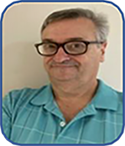 J. Wade Atkins, MS, MT(ASCP) SBB, CQA
J. Wade Atkins, MS, MT(ASCP) SBB, CQA
Supervisor, DTM QA/RA, National Institutes of Health, Bethesda, MD
J. Wade Atkins, MS, MT(ASCP) SBB, CQA, has worked for 20 years as a quality assurance and regulatory specialist for the Department of Transfusion Medicine (DTM) at the National Institutes of Health in Bethesda Maryland. He is the current supervisor of a team of five quality specialists. The DTM is a full- service blood bank with a licensed collection facility and a full transfusion service. Atkins earned a Bachelor of Science in Biology from Pfeiffer College in 1987 and was awarded a second degree in Medical Technology in 1988 after completing the rigorous program at Charlotte Memorial Hospital in North Carolina. He successfully challenged the American Society of Clinical Pathologist Specialist in Blood Banking exam in 1995. He earned a Master of Science degree from the University of Maryland University College in 1998.
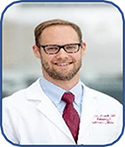 Andrew Fesnak, MD
Andrew Fesnak, MD
Assistant Professor of Clinical Pathology, Deputy Director, Clinical Cell and Vaccine Production Facility at the University of Pennsylvania, Director, Hematopoietic Stem Cell and Cell Processing Laboratory, Hospital of the University of Pennsylvania, Philadelphia, PA
Andrew Fesnak, MD, is a transfusion medicine physician with clinical and technical expertise in the area of cellular immunotherapy, biomanufacturing and medical education. He earned his Bachelor of Arts in Molecular Biology from Princeton University and MD from UMDNJ-Robert Wood Johnson Medical School. Fesnak completed Clinical Pathology residency and Transfusion Medicine fellowship at the University of Pennsylvania. Fesnak is currently the Deputy Director of the Clinical Cell and Vaccine Production Facility and the Director of the Hematopoietic Stem Cell and Cell Processing Laboratory at the University of Pennsylvania. In these roles he oversees cell processing and manufacturing for clinical-scale cell therapy research and FDA approved applications. He served on the AABB committee that established the Cellular Therapy Certificate Program and is a previous chair of the Education Committee.
 Indira Guleria, PhD, D(ABHI)
Indira Guleria, PhD, D(ABHI)
Assistant Professor of Medicine, Harvard Medical School, Associate Director, HLA Tissue Typing Laboratory, Associate Immunobiologist, Renal Transplant Program, Division of Renal Medicine, Brigham and Women’s Hospital, Boston, MA
Indira Guleria, PhD, D(ABHI), earned her PhD in Immunology from the National Institute of Immunology and completed a postdoctoral fellowship at Albert Einstein College of Medicine. Guleria’s primary research involves studying the mechanisms of transplant tolerance with a focus on the role of various costimulatory molecules in allograft tolerance. She has also made significant contributions to the field of immunobiology of solid and stem cell transplantation and has been part of the multi-disciplinary team facilitating stem cell transplants at the Dana Farber Cancer Institute. In addition to her research, Guleria has been a leader in providing education to fellows, residents and faculty through developing professional educational programs and learning tools. She currently serves on AABB’s Cellular Therapies Section Coordinating Committee and is a co-lead on the Current and Emerging Technology Committee. Her work focuses on exploring the role of myeloid derived suppressor cells and T regulatory cells in graft survival and Graft Versus Host Disease in stem cell transplant patients.
 Eapen Jacob, MD
Eapen Jacob, MD
Consultant, Division of Transfusion Medicine, Associate Professor of Laboratory Medicine and Pathology, Fellowship Director, Human Cellular Therapy Fellowship, Medical Director, Human Cellular Therapy Lab, Associate Director, IMPACT Lab, Associate Medical Director, Immunohematology Reference Lab, Department of Laboratory Medicine and Pathology, Mayo Clinic, Rochester, MN
Eapen Jacob, MD, is the Medical Director of multiple cellular therapy laboratories at Mayo that support hematopoietic progenitor cell transplants as well as novel cellular products, which are manufactured both internal and external to Mayo. He co-founded one of the first dedicated cellular therapy fellowships focusing on manufacturing of GMP products.
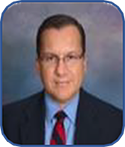 Federico Rodriguez Quezada, SBB, MLSi(ASCP)CM
Federico Rodriguez Quezada, SBB, MLSi(ASCP)CM
Collections and Processing Lab Facility Manager, UF Health Shands BMT Program, Gainesville, FL
Federico Rodriguez Quezada, SBB, MLSi(ASCP)CM, has more than 30 years of experience in cellular therapy and immunohematology. He earned his Bachelor of Science in Medical Technology from the Autonomous University of Nuevo Leon in Monterrey, Mexico, and attended the Specialist in Blood Banking School at the University of Texas Medical Branch in Galveston, TX. He later became certified as an SBB by the American Society for Clinical Pathology (ASCP). He has held different positions during his professional career: Medical Technologist, Sales Specialist, Laboratory Supervisor, Education Coordinator, Laboratory Manager, Technical Director, Adjunct Faculty, Coordinator and, recently, consultant. His experience includes all aspects of manufacturing, regulatory requirements and compliance, process design, process improvement and quality management systems in the Cellular Therapy field, including bone marrow, cord blood and peripheral blood, as well as other novel therapies.
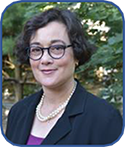 Ronit Slotky, PhD, MSc
Ronit Slotky, PhD, MSc
Director, Cell Therapies Manufacturing Facility, Hackensack University Medical Center, Hackensack, NJ. Associate Professor of Oncology, Hackensack Meridian School of Medicine, Nutley, NJ
Ronit Slotky, PhD, MSc, earned her PhD in Biology at the Technion, Israel Institute of Technology in Haifa, Israel, and her MSc in Biostatistics at Columbia University Mailman School of Public Health in New York. She completed her post doctorate at Columbia University Medical Center studying proteins’ structure and function. Slotky has been working in the cellular therapy field for more than 15 years and is currently the Director of the Cell Therapies Manufacturing Facility at the Hackensack University Medical Center and Associate Professor of oncology at the Hackensack Median Health School of Medicine. Her current work and research efforts focus on improving cell processing methods and patient outcomes and providing education opportunities for clinicians and researchers.
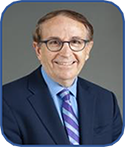 Thomas R. Spitzer, MD
Thomas R. Spitzer, MD
Medical and Laboratory Director, Cellular Therapy and Transplantation Laboratory, Emeritus Director of the Bone Marrow Transplant Program, Massachusetts General Hospital, Professor of Medicine, Harvard Medical School, Boston, MA
Thomas Spitzer, MD, is Director Emeritus of the Bone Marrow Transplant Program and Medical and Laboratory Director of the Cellular Therapy and Transplantation Laboratory at the Massachusetts General Hospital (MGH) and is Professor of Medicine at Harvard Medical School. He is also Walter Bauer Firm Chief in the Department of Medicine. Spitzer received his Bachelor of Science degree in Biology from Bucknell University and his MD from the University of Rochester School of Medicine. He completed his internship and residency in Internal Medicine at New York Hospital-Cornell Medical Center and Memorial-Sloan Kettering Cancer Center, and his Hematology-Oncology fellowship at Case Western Reserve University. His primary research interests have included the development of novel strategies for performing hematopoietic cell transplants across HLA barriers for hematologic malignancies and for inducing specific tolerance for organ transplantation by performing combined bone marrow and kidney transplants. The cellular therapy lab that he directs has provided all the products for hematopoietic cell transplantation at MGH and is currently involved with many novel immune effector cellular therapy trials. He has assumed leadership roles in AABB, including serving as Chair of the Cellular Therapy Section Coordinating Committee and as a member of the Board of Directors. He is a devoted teacher of medical students and residents in his Firm Chief role, and he has been the recipient of teaching awards for his contributions to medical education.
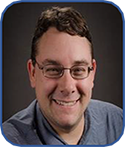 Matthew J. Wilgo
Matthew J. Wilgo
Cell Biology Scientist, General Supervisor, New England Cord Blood Bank/New England Cryogenic Center, Marlborough, MA
Matthew Wilgo is the resident Cell Biology Scientist at New England Cord Blood Bank and New England Cryogenic Center, with over two decades of experience in research and development in the fields of cellular and stem cell biology. He graduated from the University of New Hampshire with a Bachelor of Science in Microbiology, and has a passion for the biological fields of science. He obtained a deep understanding of stem cells after working for nearly a decade in Millipore’s stem cell R&D division. Wilgo has presented numerous educational sessions and abstracts at scientific societies such as AABB and the American Society for Cell Biology and has co-authored a chapter in Methods for Cell Biology. He currently serves on AABB’s Cellular Therapies Section Coordinating Committee as well as a co-lead on the Cord Blood subsection. His current work focuses on hematopoietic stem cells from cord blood and mesenchymal stem cells from umbilical cord tissue and dental pulp.
Reviewers: